SUMMARY
This is AI generated summarization, which may have errors. For context, always refer to the full article.
![[OPINION] ASEAN needs framework for environmental rights](https://www.rappler.com/tachyon/2023/06/mho-environmentalrights.jpg)
In light of World Environment Day on June 5, it is a timely opportunity to reflect on the relationship between the environment and human rights.
When we hear the word “environment,” our mind immediately goes to nature itself, and rightfully so. Yet at its most basic definition, the “environment” refers to anything that surrounds us. Through this angle, we can say that caring for our environment inherently involves caring for other human beings, including their substantive and procedural rights.
The environmental rights agenda has seen significant progress globally in recent years. The UN recognized the right to a clean, healthy, and sustainable environment as a human right, while the Commission on Human Rights issued a landmark report that states fossil fuel companies can be held liable for human rights violations caused by their pollutive activities.
Despite this progress, environmental rights continue to be threatened in the Philippines. For example, the country remains one of the most dangerous in the world to environmental defenders. With crises like climate change and plastic pollution projected to worsen, millions of Filipinos could be hindered in exercising their rights.
These trends are also seen in many of the Philippines’s neighbors within the ASEAN, collectively among the most vulnerable regions to several ecological issues. As a result, a new regional framework is needed for protecting and upholding environmental rights of millions of its residents.
It is with this context that the ASEAN Environmental Rights Framework (ERF) is being developed.
What should be included
The ERF must contain strong measures for protecting the rights and well-being of environmental defenders and frontline communities. These should include the rights to life, freedom of speech and expression, peaceful assembly, and participation in environmental decision-making processes. ASEAN has to create a framework that guarantees a safe and secure environment for these stakeholders to exercise their rights, given that they are also likely among the most vulnerable to natural and man-made threats.
Among the stakeholders that needs to be specifically focused on are the indigenous peoples (IPs) within the region. Despite their role in protecting ecosystems and biodiversity and the well-documented threats they have faced in previous decades, no specific clause on IP rights was included in the current ASEAN Human Rights Declaration.
Within the resulting framework must be clear statements that the IP’s substantive rights, especially those that pertain to basic necessities, livelihoods, and protecting ecosystems, are protected and upheld through mechanisms at the national and regional levels. They must also be directly included and enabled to actively participate in decision-making processes that directly impact the well-being of their communities and the environments on which they depend.
Furthermore, the ERF must remove barriers that prevent individuals and communities from access to environmental justice, such as expensive legal procedures and bureaucratic inefficiencies that delay decisions. ASEAN member-states should enforce strategies and improve existing policies to ensure their access to legal and administrative measures applicable for matters on environmental rights. Mechanisms should include providing free legal and technical assistance to complainants and use of native languages in addressing cases and disputes.
Enhancing inclusive public participation in environmental decision-making should be required for ASEAN and its member-states. We are all stakeholders to numerous environmental challenges facing us, which means all citizens have the right to be represented or actively engage in decision-making. Mechanisms must be established to ensure the entire process at any level of governance would be culturally-appropriate, locally-relevant, and gender-sensitive.
The ERF must emphasize the protection of human rights of those that would be affected by the inevitable just transition towards more sustainable models. A transformation of economies and societies throughout the ASEAN must guarantee that workers and communities either dependent on systems to be phased down or phased out (i.e. fossil fuels) or affected by more ecologically-sound infrastructures to be built as part of the transition (i.e. renewable energy) would not be left behind.
The resulting framework should also improve on existing strategies for communicating information related to environmental rights. It should guarantee that data will be generated, collected, and disseminated in a comprehensible and timely manner to different sectors. Key information such as ways to access legal and judicial instruments, file cases, respond to complaints, and participate in decision-making processes must be communicated, especially to the most vulnerable peoples (i.e., women, youth, IPs, persons with disabilities).
Another key provision within the ERF must be denouncing, prohibiting, and punishing environmental denialism and disinformation. Failure to respond to this growing alarming trend within the ASEAN effectively limits the ability of many communities to exercise their environmental rights, as they would be accessing false information. ASEAN member-states should enact new laws and policies to avoid such scenarios and help reduce the risks that millions of citizens would face.
It should be emphasized that developing the ERF is an entirely different matter from effectively implementing it. Yet there is no question that establishing this framework is not an option, but a necessity for the ASEAN to address the environmental crises that face it and are still to come. – Rappler.com
John Leo Algo is the Deputy Executive Director for Programs and Campaigns of Living Laudato Si’ Philippines and a member of Aksyon Klima Pilipinas and the Youth Advisory Group for Environmental and Climate Justice under the UNDP in Asia and the Pacific. He is a climate and environment journalist since 2016.
Add a comment
How does this make you feel?

![[OPINION] Fossil fuel debts are illegitimate and must be canceled](https://www.rappler.com/tachyon/2024/04/IMHO-fossil-fuel-debt-cancelled-April-16-2024.jpg?resize=257%2C257&crop_strategy=attention)
![[WATCH] John Kerry: You can’t solve climate crisis without addressing ocean’s challenges](https://www.rappler.com/tachyon/2023/12/cop28-united-states-john-kerry-december-2-2023-reuters-001.jpg?resize=257%2C257&crop_strategy=attention)

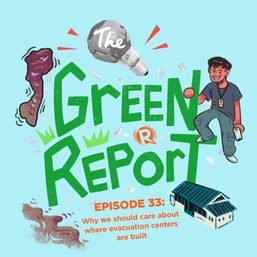
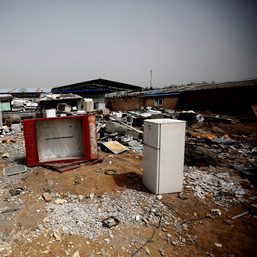
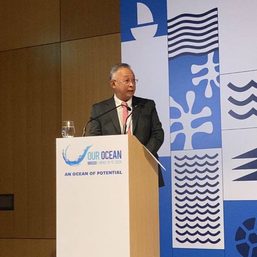
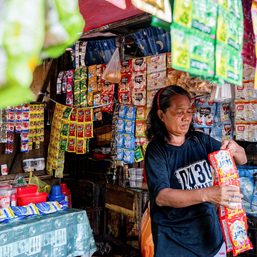
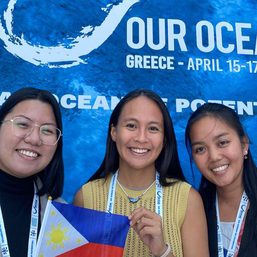
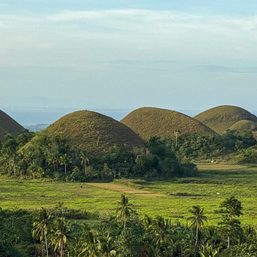
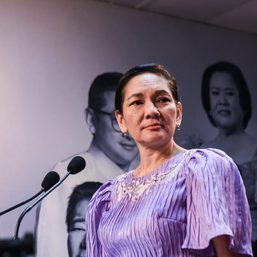
There are no comments yet. Add your comment to start the conversation.